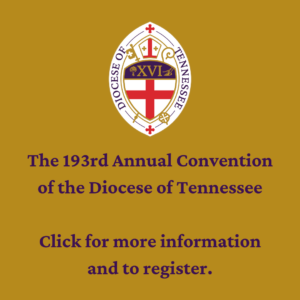
“Everyone who belongs to the truth listens to my voice”(Jo. 18:37).
What is the truth, anyway? The ancient Greeks believed that truth was reality, things that were plainly evident. Truth is what actually took place in contrast to rumor or falsehood. For their philosophers, truth was something that was accessible to the mind: in other words, it could be understood. Most of us, in our everyday lives, still act on these assumptions about truth: the world around us is real; we can understand it and rely on it.
But people in our day are also familiar with the idea of multiple truths: you speak your truth, and I speak mine. Both truths are valid, even if they are mutually contradictory. This idea of different truths for different people coexists with appeals to “scientific truth”: as in, “In this house we believe in science,” as if there were in fact only one truth. There are also more skeptical approaches, where people wonder if there is any truth at all. From this perspective, every assumption about what’s true, and every statement of the truth, is approached with suspicion, as being a mere power play. “What are you trying to put over on us?”, we ask. In such a world, with so many notions of truth, can there really be any truth?
Truth, from a biblical perspective, is the truth about God. Ancient Israel discovered the truth in encounter with God. “Into your hands I commend my spirit,” it says in Psalm 31, “for you have redeemed me, O Lord, O God of truth” (Ps. 31:5). Truth is that close to God. “Send out your light and your truth, that they may lead me, and bring me to your holy hill, and to your dwelling” (Ps. 43:3): that’s Psalm 43. God is a God of truth, in other words, and sends forth his truth. God is true, Truth itself, because he is reliable, as in “his aim is true,” and he will hit the mark.
Not only is God true, but he loves the true of heart. “You look for truth deep within me,” it says in Psalm 51. “The righteous will rejoice in the Lord and put their trust in him, and all who are true of heart will glory” (Ps. 64:10): Psalm 64. Finally, Psalm 97, “Light has sprung up for the righteous, and joyful gladness for those who are truehearted” (Ps. 97:11). There’s no doubt that truth in ancient Israel is the truth about God; and for the believer, living in accord with that truth means being “truehearted” in both our words and in our deeds.
That brings us to Jesus in our reading today, from the Gospel of John: “Everyone who belongs to the truth listens to my voice”(Jo. 18:37), Jesus says. He is “the way, and the truth, and the life” (Jo. 14:6), as he says earlier in the fourteenth chapter: he is the Truth, and he speaks the truth. So we who aspire to be among the truehearted need to be paying attention; we need to be open to the transforming power of Jesus’ words and deeds.
As Jesus says elsewhere in the Gospel of John, “But those who do what is true come to the light, so that it may be clearly seen that their deeds have been done in God” (Jo. 3:21). “Doing the truth” is something more than just believing or understanding something to be true. It’s more than “head” knowledge or even “heart” knowledge. It means living the truth, in word and deed: not only “speaking the truth” (Eph. 4:15) as St. Paul puts it in Ephesians, but also acting in accordance with truth. It says in the First Letter of John, “If we say that we have fellowship with him while we are walking in darkness, we lie and do not do what is true” (1 Jo. 1:6). “Doing the truth” means following through in accordance with Jesus’ own words and deeds. Our baptismal candidate and our confirmands will be showing us the way this morning.
To this extent, “your truth” and “my truth” are beside the point: what counts is the truth as it is in Christ Jesus (Eph. 4:21). We put our faith in his death and resurrection. In Christian perspective, scientific truth cannot be the only truth on which we stake our lives. The “open statement of the truth” (2 Cor. 4:2), as St. Paul calls it in his Second Letter to the Corinthians, must be embraced by faith and not distanced by suspicion. It’s the means of life for us, the truth on which all truth stands or falls, and on which we stand or fall ourselves.
One last thing: did you know that the word “amen” is a form of the Hebrew word for “truth”? It’s the way those who join in the prayer signify their assent. It’s our “true dat”; our “so say we all” at the end of the prayer. So you see that the truth punctuates our liturgy at every step. At baptism and confirmation today let your “amen” ring out! We stand on the truth as it is in Christ Jesus.